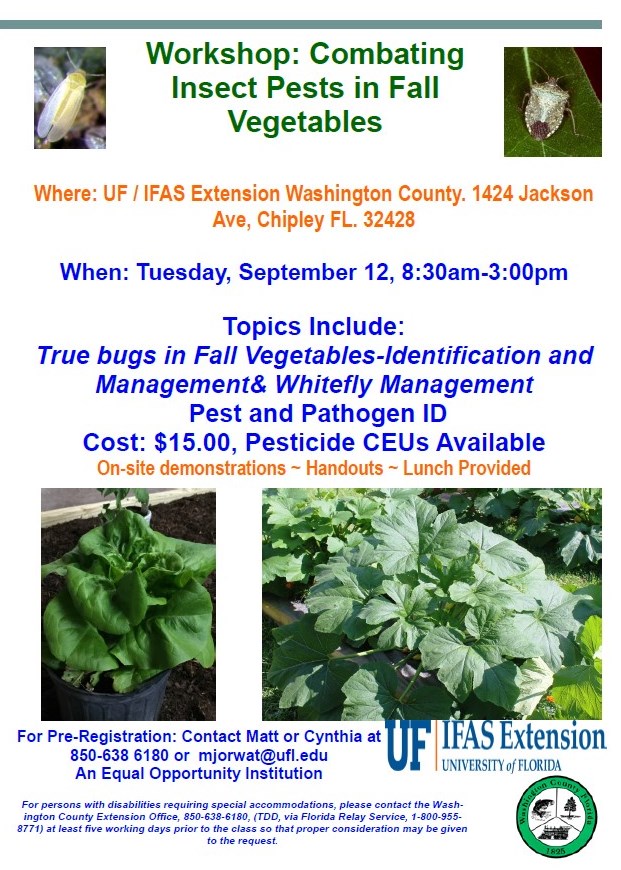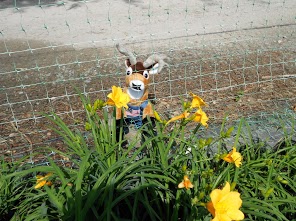
CANCELLED ! Fall Vegetable Production Workshop – Combating Insect Pests September 12, 2017
 This event has been cancelled due to Hurricane Irma and the impact it is having on the speakers, who were planning on travelling from central Florida. Rescheduled for February 2018
This event has been cancelled due to Hurricane Irma and the impact it is having on the speakers, who were planning on travelling from central Florida. Rescheduled for February 2018
Entomology specialists from the University of Florida and Extension agents will be leading hands on sessions focusing on insect pest management in vegetable production. This workshop is relevant to anyone growing vegetable crops in any season, but will have a special focus on fall vegetable pests.
Lunch will be provided and CEUs for pesticide license holders will also be available.
Cost: $ 15.00
Address: Washington County Ag Center East Wing, 1424 Jackson Ave, Chipley FL 32428.
Time: 8:30am-3:00pm
Pre Registration required for count: Contact Nikki or Cynthia at 850-638-6180 or email Matthew Orwat at mjorwat@ufl.edu
or register online at eventbrite HERE !
Agenda
-
Welcome and Introduction 8:30am-8:35 Matthew Orwat, Washington County Cooperative Extension, Amanda Hodges, University of Florida
-
True bugs in Fall Vegetables-Identification and Management 9:00am-10:15am
-
Cowpea Curculio 10:15am-10:30pm
-
Break 10:30am-10:45am
-
Whitefly Management 10:45am-11:10am
-
Invasive Species problems in North Florida Vegetable Production 11:10am-11:30am
-
Invasive Stink Bugs and Related True Bugs 11:30am-11:50pm
-
Lunch 11:50pm-12:30pm
-
Tomato leafminer Tuta absoltua 12:30m-12:45pm
-
Old World bollworm and Exotic Spodoptera Pests 12:45pm-1:05pm
-
Common Vegetable Plant Diseases in the Florida Panhandle 1:05pm-1:35pm
-
Pest and Pathogen Walk 1:35pm-2:05pm
-
CAPS Exotic Corn Diseases of Concern 2:05pm-2:35pm
-
Sample Submission, Arthropod and Disease samples 2:35pm-2:50p

